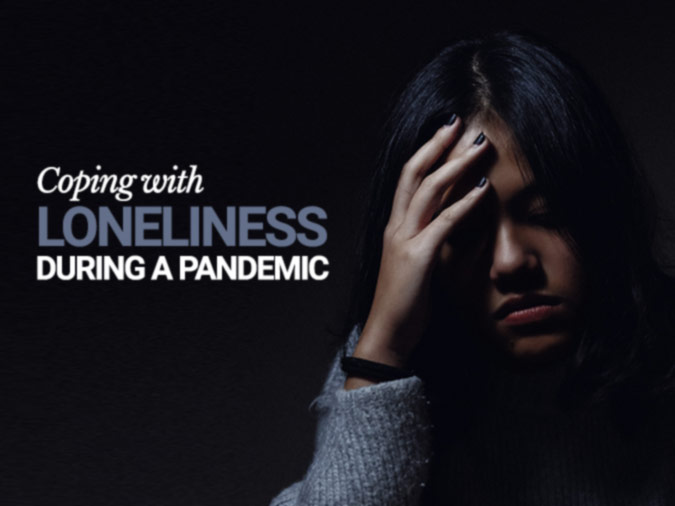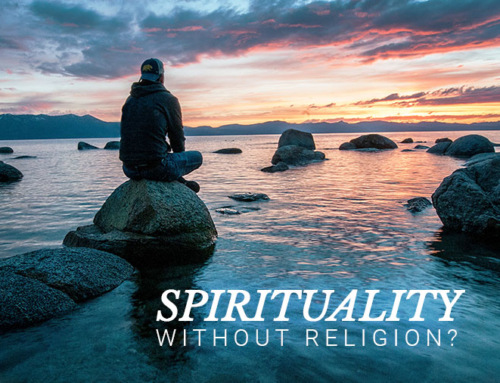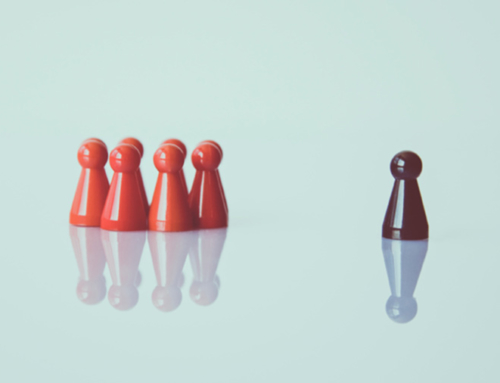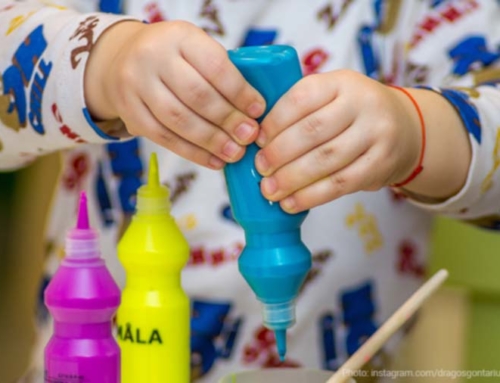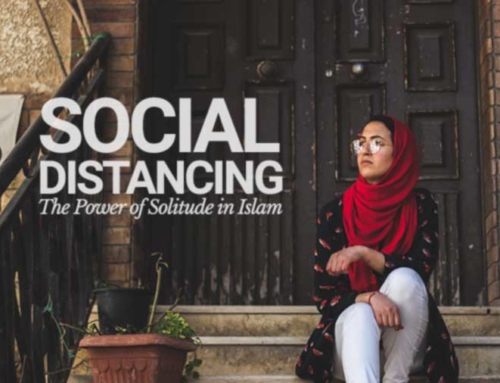By: Najwa Awad LCSW-C
Navigating Social Distancing and Quarantine Challenges Amid COVID-19
As COVID-19 continues to spread throughout the world and more deeply into each nation, people have been struggling to grapple with the massive implications of what is to come over the next several months, especially with interpersonal relationships. One of the most challenging parts of adjusting to Coronavirus for individuals and families has been social distancing and quarantining at home. Going from an extremely fast paced world of appointments, social events, extracurricular activities and networking to abruptly being forced to stay at home out of fears of getting sick or doing one’s social responsibility has been a jolting experience to say the least.
Navigating Spiritual Distancing and Religious Practices
Muslims in particular have been saddened by these changes as they saw religious practices that they once took for granted, like the Friday prayer, funerals and praying in the mosque for congregation suddenly gone. These acts of worship came with prosocial benefits as congregants got to check-in with their friends on a consistent basis with no effort. What happens though, when there is a pandemic preventing people from not only socially congregating, but creating spiritually distancing as well?
Reframing Being Alone
Research shows that there are many risk factors associated with loneliness including increased morbidity and mortality.1 Loneliness is associated with higher risks of physiological aging, cardiovascular risk and mental health issues. There is also research about the mental health effects of quarantining that suggests the impact can be substantially negative and long-lasting.2 Despite some of these concerns, experts agree that while there is overlap between social isolation and loneliness, they are not the same. A person who is socially isolated is not necessarily lonely just the way someone who feels lonely might not be socially isolated. Many mental health professionals also agree that physical distancing doesn’t mean the loss of social connection.
The Power of Cognitive Restructuring During Quarantine
In any situation we can choose to focus on the negatives or the positives, and therefore being aware of one’s mindset is imperative during difficult times. Cognitive restructuring is a technique used by psychotherapists like myself, to help people look to the brighter side of things; it is the process of taking unhealthy thoughts or unideal situations and looking at the silver lining. In a situation where quarantining is essential for everyone’s health, we can choose to look at this experience as negative (we are being forced to stay home) or in a more positive light (this is a chance to be safe at home – a blessing to decompress and reconnect with loved ones).
The Blessings of Home Retreat and Spiritual Growth
One of the major benefits of staying home and having more quiet time is being able to spend time with God. In our busy lives of working, running errands, trying to make ends meet and sustain our families little time is often left for spiritual development. Many look forward to Ramadan each year because there is hope that fasting will slow them down and help them reconnect with God. Some Muslims even perform a retreat in the mosque known as itikaf during the last 10 days of Ramadan to focus on worship. The Prophet Muhammed peace be upon him used to spend time in worship alone in the Cave of Hira for long periods of time. While one can argue that all these examples are voluntary isolation and under better circumstances, it doesn’t mean we cannot extract the positive benefits to our situation.
Deepening Your Connection with God
There is a common phrase, “to know someone is to love them,” and what a wonderful opportunity this extra time could be used to spend getting to know God and the purpose of life. During a time of uncertainty there can be nothing more comforting than taking refuge in God The Strong (Al- Qawiyy), The Giver of Life (Al Muhyee) and The Most Capable (Al Qadeer). One who is connected to God can quickly realize that it’s impossible to feel alone if you feel that God is always with you.
Staying Connected with Others
It’s imperative that although we are to practice quarantining, we should not distance ourselves emotionally or socially from others. There are many ways to stay connected with family and friends during this time even if you cannot be in close physical proximity with them
Maintaining Balance and Productivity
As people start to work from home, schedules will undoubtedly shift. Many parents have to cope in working as usual while taking care of their children. Others may find increased flexibility that can lead them to starting work later in the day and finishing later in the day. Both have risks for creating environments that feel out of control. Since human beings crave structure and stability it is important to continue a sense of routine during this time- this is a way of staying connected with yourself. Waking and going to sleep at consistent times is grounding. Making lists of what you need to get done the next day in the evening and focusing on getting your work completed early in the morning can also help you feel productive.
Embracing Family Bonding
If you are at home with family, spend quality time with them by conversing, playing board games, doing activities and learning together. Remember that physical contact is very important for mental health; as long as it’s safe to do so- hug, cuddle and kiss your loved ones. Do not go a day without having a meaningful connection with at least one person.
Virtual Togetherness
Make efforts to spend time with your friends and extended family through Facetime, phone and text. You can have coffee dates and even play some types of board games through platforms like Zoom.
Online Group Activities
Participate in group activities like online religious study circles, learning opportunities, support groups and book clubs.
Staying Active Together Apart
Continue to stay physically active which is very important for mental health. Join fitness groups online or continue to do fitness activities with your friends, but separately. You may not be able exercise together, but you can simultaneously work-out at similar times and check in with each other after.
Virtual Counseling
If you were in therapy before, continue to get counseling online. Quarantining can pose special risks for those who already have depression and anxiety. Having the right kind of emotional support can make a big difference in loneliness, mood and well-being.
Empowering Resilience Amidst COVID-19
Coronavirus poses certain threats to our social and mental health; however, we can use strategies to try and minimize risk. Reframing is a powerful tool that can help us shift a narrative of feeling helpless and alone, to being more emotionally connected to God and our loved ones. Easy and practical strategies, like staying physically active and socially engaging with others online, can also help us feel connected with others and prevent feelings of loneliness.
[1] Hawkley, L. C., & Cacioppo, J. T. (2010). Loneliness matters: a theoretical and empirical review of consequences and mechanisms. Annals of behavioral medicine : a publication of the Society of Behavioral Medicine, 40(2), 218–227. https://doi.org/10.1007/s12160-010-9210-8
[2] Brooks, S., Webster, R., Smith, L., Woodland, L, Wessely, S., Greenberg, N. & Rubin, G. (2020). The psychological impact of quarantine and how to reduce it: rapid review of the evidence. The Lancet, 395 (10227), 912-920.https://doi.org/10.1016/S0140-6736(20)30460-8
Najwa Awad LCSW-C is a psychotherapist who is passionate about helping Muslims heal, grow, and thrive after adversity. She has over a decade of experience providing online and in-person counseling to children, adults, and families at her practice Amanah Family Counseling. Najwa also enjoys giving workshops to destigmatize mental illness, address current mental health issues within the community, and promote psychological health from an Islamic perspective. You can find more info at www.amanahcounseling.com or instagram @therapywithnajwa
Got Questions?
We have Answers. Get in touch now.


